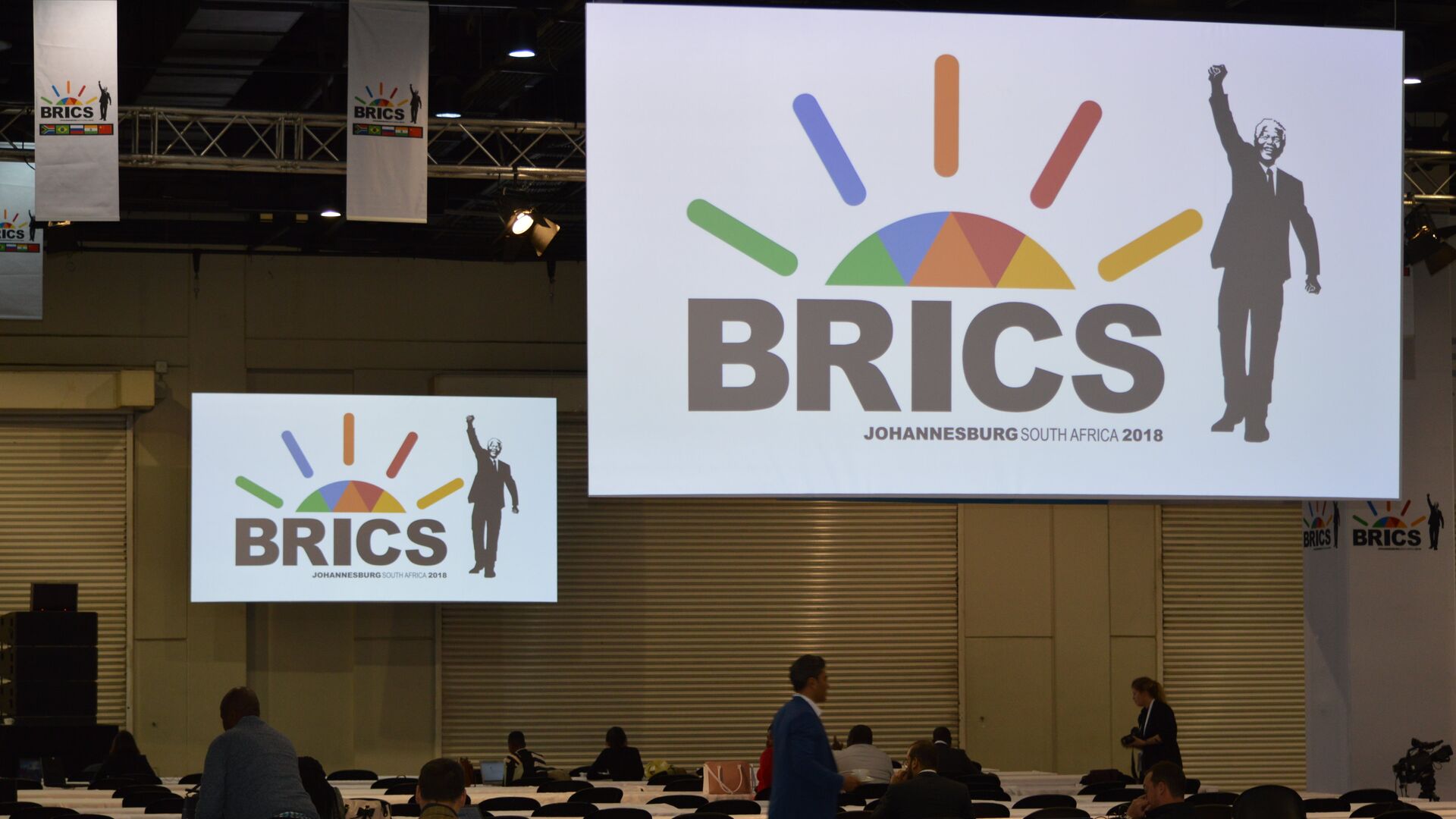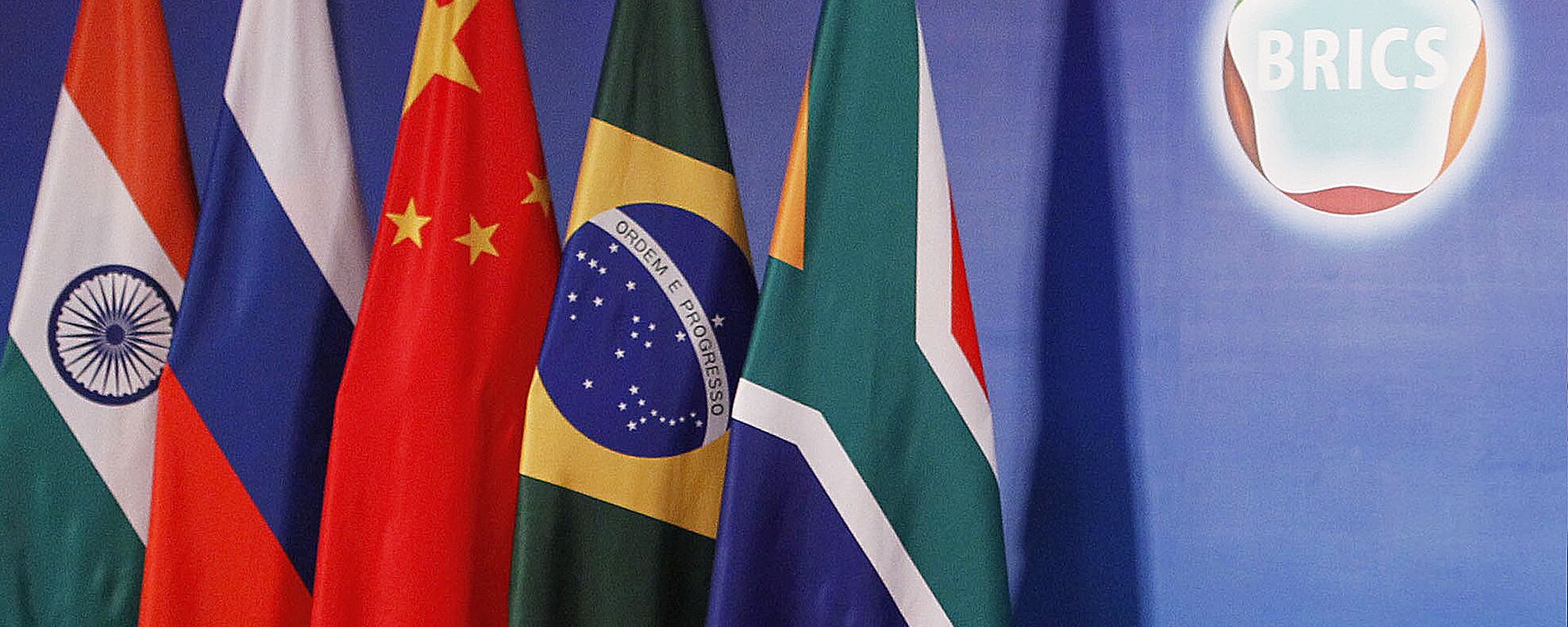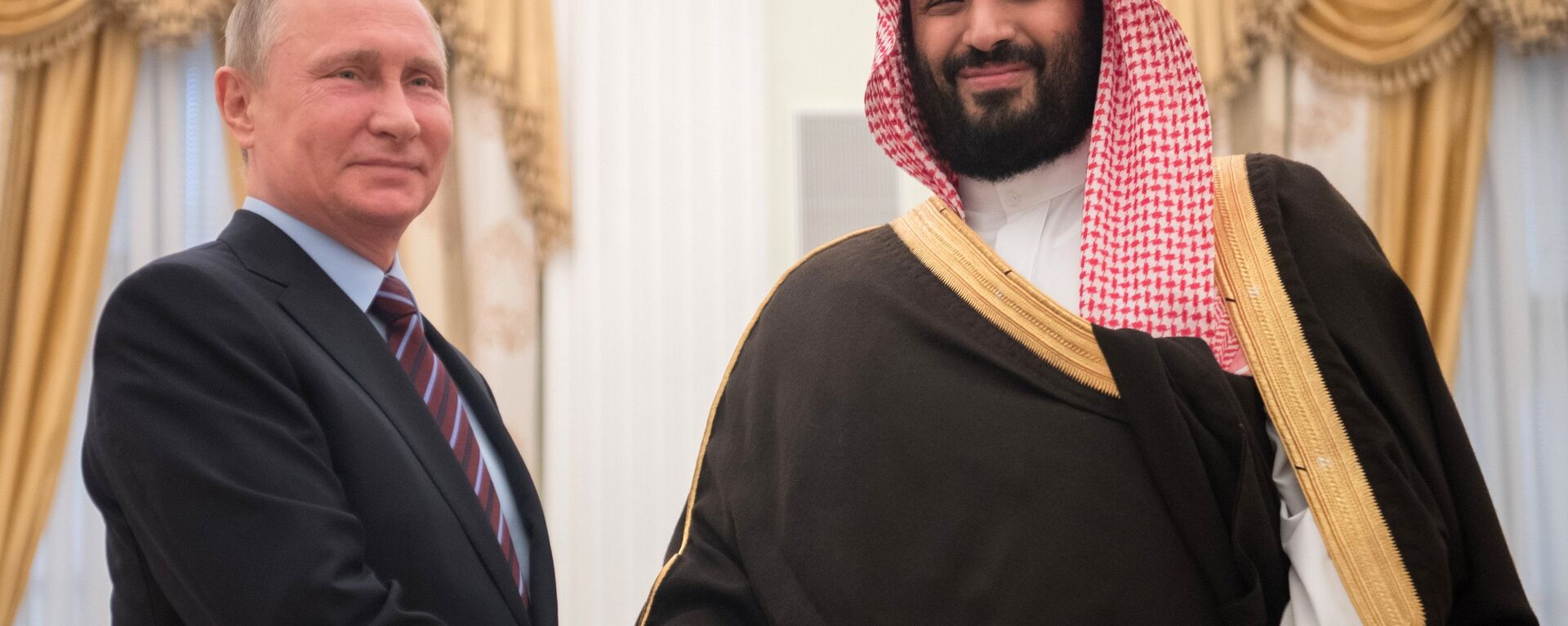https://sputniknews.in/20230422/brics-economic-growth-spilling-over-to-whole-of-south-asia-1651683.html
BRICS' Economic Growth Spilling Over to Whole of South Asia
BRICS' Economic Growth Spilling Over to Whole of South Asia
Sputnik India
The US is losing economic ground to China and Russia as Middle Eastern and Asian nations turn to the BRICS development partnership, data indicates. President... 22.04.2023, Sputnik India
2023-04-22T21:54+0530
2023-04-22T21:54+0530
2023-04-25T17:38+0530
south asia
brics
rising economies
global economy
shanghai cooperation organisation (sco)
business
trade in national currencies
trade corridor
sputnik opinion
https://cdn1.img.sputniknews.in/img/07e7/01/12/543379_0:0:4512:2538_1920x0_80_0_0_7556769d3c585c6c43e1a97c33e79694.jpg
Washington's global hegemony has declined over the past few years as the rise of BRICS brings a vision of a multipolar world. BRICS is an acronym for five leading economies: Brazil, Russia, India, China, and South Africa. The first four were initially grouped as BRIC in 2001 by Goldman Sachs economist Jim O'Neill, who coined the term to describe fast-growing economies that would collectively dominate the global economy by 2050. Later on, South Africa was added in 2010.President of The Indian Business Alliance (IBA) Sammy Kotwani told Sputnik that BRICS is changing the Central and South Asian regions as more countries are looking to join it.As the western political systems become more complex and unpredictable, BRICS is fostering stronger ties and economic cooperation.Last Monday, Bloomberg reported that members of the BRICS group are expected to outpace the US-led G7 in terms of their contribution to the world’s economic growth, starting this year.Based on the latest IMF data, BRICS countries will contribute 32.1% of the world’s growth, compared to the G7’s 29.9%. The Group of Seven nations (G7) – consisting of the US, UK, Canada, France, Germany, Italy, and Japan – has long been considered the most advanced economic bloc of countries. Russia was a member, until 2014, when it was expelled due to the fallout from the Western-backed Maidan coup in Ukraine.However, now it seems that the global picture is changing, as by 2028, the G7’s contribution to the world economy is predicted to decrease to 27.8%, while the BRICS will account for 35%.According to Kotwani, huge economic turnovers and trade partnerships are not the only elements that connect the BRICS.He further added that the five members of the BRICS represent more than 42% of the planet’s total population, hence, it cannot be ignored that these nations rich in natural resources, such as oil and gas and minerals enjoy the greatest biodiversity on the planet and play a vital role in the future.Furthermore, over the years, the members of BRICS have cooperated on various important projects such as the establishment of the New Development Bank (NDB) to support its members.However, one more important measure was the creation of a vaccine research and development center through the collaboration of the five members last March.At the launch ceremony, the five countries explained that strengthening vaccine cooperation aims to ensure the accessibility and affordability of vaccines in developing countries through their equitable distribution as global public goods. Moreover, BRICS members made it clear that they place special emphasis on openness and welcome more partners to join.Hence, it is due to these multiple reasons that more countries are interested in joining BRICS.He went on to explain that these countries have significant economic, political, and strategic weight in their respective regions, and could contribute to diversifying and strengthening the BRICS platform.BRICS has managed to unite countries with different cultural and civilizational backgrounds, with their own foreign policy guidelines and models of national development, and it seems that in the near future, more countries will become a part of it.Earlier this year, Russian Foreign Minister Sergey Lavrov said that "more than a dozen" nations have expressed interest in joining BRICS, including Algeria, Argentina, Bahrain, Bangladesh, Indonesia, Iran, Egypt, Mexico, Nigeria, Pakistan, Sudan, Syria, Türkiye, the United Arab Emirates, and Venezuela.Meanwhile, Saudi Arabia, Egypt, and Bangladesh have acquired equity in the New Development Bank, the funding organization of BRICS. In another big step towards a more multipolar world, last year, BRICS countries proposed the creation of their own currency in order to move away from the US dollar and the euro in mutual transactions.
https://sputniknews.in/20230425/brics-draws-membership-interest-from-19-nations-south-african-envoy-1683615.html
https://sputniknews.in/20230421/putin-and-saudi-crown-prince-discuss-prospects-of-cooperating-with-brics-1644976.html
south asia
Sputnik India
feedback.hindi@sputniknews.com
+74956456601
MIA „Rossiya Segodnya“
2023
Aneela Rashid
https://cdn1.img.sputniknews.in/img/07e6/0c/0d/74548_0:0:485:484_100x100_80_0_0_821526e967ae85d041e2d30ee34fa1de.jpg
Aneela Rashid
https://cdn1.img.sputniknews.in/img/07e6/0c/0d/74548_0:0:485:484_100x100_80_0_0_821526e967ae85d041e2d30ee34fa1de.jpg
News
en_IN
Sputnik India
feedback.hindi@sputniknews.com
+74956456601
MIA „Rossiya Segodnya“
Sputnik India
feedback.hindi@sputniknews.com
+74956456601
MIA „Rossiya Segodnya“
Aneela Rashid
https://cdn1.img.sputniknews.in/img/07e6/0c/0d/74548_0:0:485:484_100x100_80_0_0_821526e967ae85d041e2d30ee34fa1de.jpg
south asia, brics, rising economies, global economy, shanghai cooperation organisation (sco), business, trade in national currencies, trade corridor
south asia, brics, rising economies, global economy, shanghai cooperation organisation (sco), business, trade in national currencies, trade corridor
BRICS' Economic Growth Spilling Over to Whole of South Asia
21:54 22.04.2023 (Updated: 17:38 25.04.2023) Exclusive
The US is losing economic ground to China and Russia as Middle Eastern and Asian nations turn to the BRICS development partnership, data indicates. President of The Indian Business Alliance (IBA), Sammy Kotwani, noted that the leading emerging economies are turning their faces east in search of markets and finance.
Washington's global hegemony has declined over the past few years as the rise of BRICS brings a vision of a multipolar world.
BRICS is an acronym for five leading economies: Brazil, Russia, India, China, and South Africa. The first four were initially grouped as BRIC in 2001 by Goldman Sachs economist Jim O'Neill, who coined the term to describe fast-growing economies that would collectively dominate the global economy by 2050. Later on, South Africa was added in 2010.
President of The Indian Business Alliance (IBA) Sammy Kotwani told Sputnik that BRICS is changing the Central and South Asian regions as more countries are looking to join it.
"BRICS is an economic, political, and strategic alliance among emerging powers that aims to enhance multilateral cooperation and promote the interests of developing countries. It has been changing the whole South Asian region in various ways," Kotwani explained. "Firstly, BRICS member countries are major trading partners with South Asian countries, and their economic growth and investment have positive spillover effects in the region. Secondly, BRICS provides a forum for South Asian countries to engage with other emerging powers and support their aspirations for global governance reform."
As the western political systems become more complex and unpredictable, BRICS is fostering stronger ties and economic cooperation.
Last Monday, Bloomberg reported that members of the BRICS group are expected to outpace the US-led G7 in terms of their contribution to the world’s economic growth, starting this year.
Based on the latest IMF data, BRICS countries will contribute 32.1% of the world’s growth, compared to the G7’s 29.9%. The Group of Seven nations (G7) – consisting of the US, UK, Canada, France, Germany, Italy, and Japan – has long been considered the most advanced economic bloc of countries. Russia was a member, until 2014, when it was expelled due to the fallout from the Western-backed Maidan coup in Ukraine.
However, now it seems that the global picture is changing, as by 2028, the G7’s contribution to the world economy is predicted to decrease to 27.8%, while the BRICS will account for 35%.
According to Kotwani, huge economic turnovers and trade partnerships are not the only elements that connect the BRICS.
"BRICS also plays a significant role in addressing regional security issues and promoting peace and stability, through initiatives like the BRICS Counter-Terrorism Working Group and the BRICS Security Dialogue," he told Sputnik.
He further added that the five members of the BRICS represent more than 42% of the planet’s total population, hence, it cannot be ignored that these nations rich in natural resources, such as oil and gas and minerals enjoy the greatest biodiversity on the planet and play a vital role in the future.
Furthermore, over the years, the members of BRICS have cooperated on various important projects such as the establishment of the New Development Bank (NDB) to support its members.
However, one more important measure was the creation of a vaccine research and development center through the collaboration of the five members last March.
At the launch ceremony, the five countries explained that strengthening vaccine cooperation aims to ensure the accessibility and affordability of vaccines in developing countries through their equitable distribution as global public goods. Moreover, BRICS members made it clear that they place special emphasis on openness and welcome more partners to join.
Hence, it is due to these multiple reasons that more countries are interested in joining BRICS.
"There are several countries that could be great additions to BRICS, depending on the criteria used for membership. Some of the possible candidates could be Mexico, Indonesia, Turkiye, Nigeria, Egypt, or Iran," Kotwani said.
He went on to explain that these countries have significant economic, political, and strategic weight in their respective regions, and could contribute to diversifying and strengthening the BRICS platform.
"However, there may be challenges in integrating new members into the existing framework, and the decision to expand BRICS will depend on the consensus of the current members and their strategic interests," the president added.
BRICS has managed to unite countries with different cultural and civilizational backgrounds, with their own foreign policy guidelines and models of national development, and it seems that in the near future, more countries will become a part of it.
Earlier this year, Russian Foreign Minister Sergey Lavrov said that "more than a dozen" nations have expressed interest in joining BRICS, including Algeria, Argentina, Bahrain, Bangladesh, Indonesia, Iran, Egypt, Mexico, Nigeria, Pakistan, Sudan, Syria, Türkiye, the United Arab Emirates, and Venezuela.
Meanwhile, Saudi Arabia, Egypt, and Bangladesh have acquired equity in the New Development Bank, the funding organization of BRICS. In another big step towards a more multipolar world, last year, BRICS countries proposed the creation of their own currency in order to move away from the US dollar and the euro in mutual transactions.




